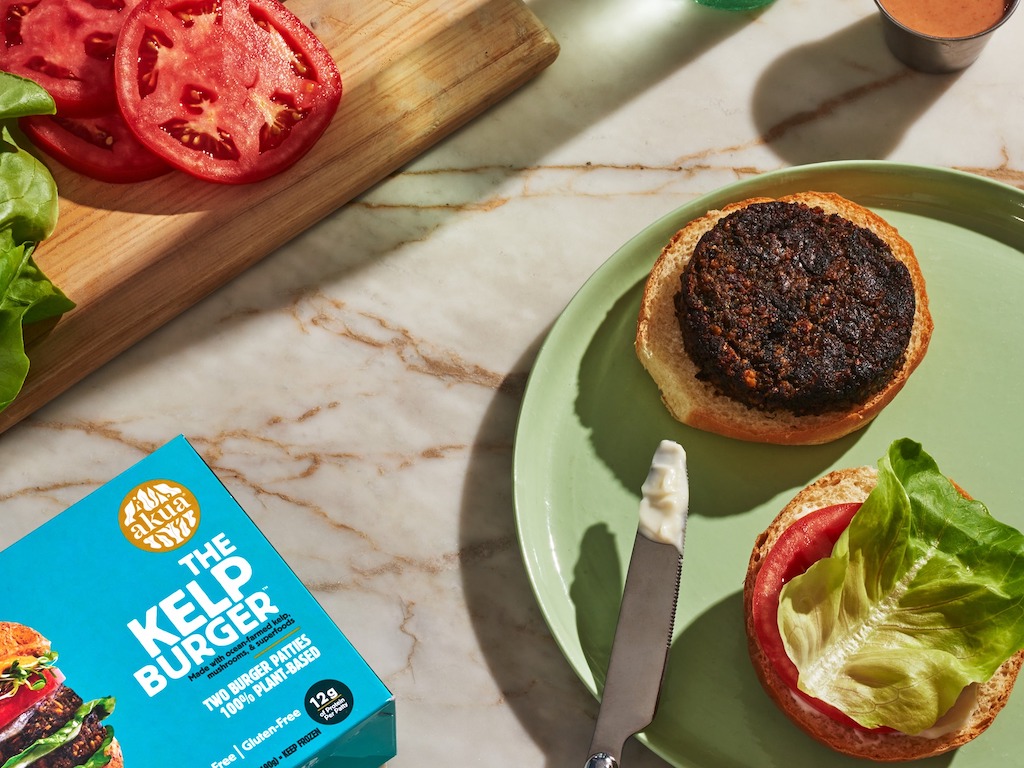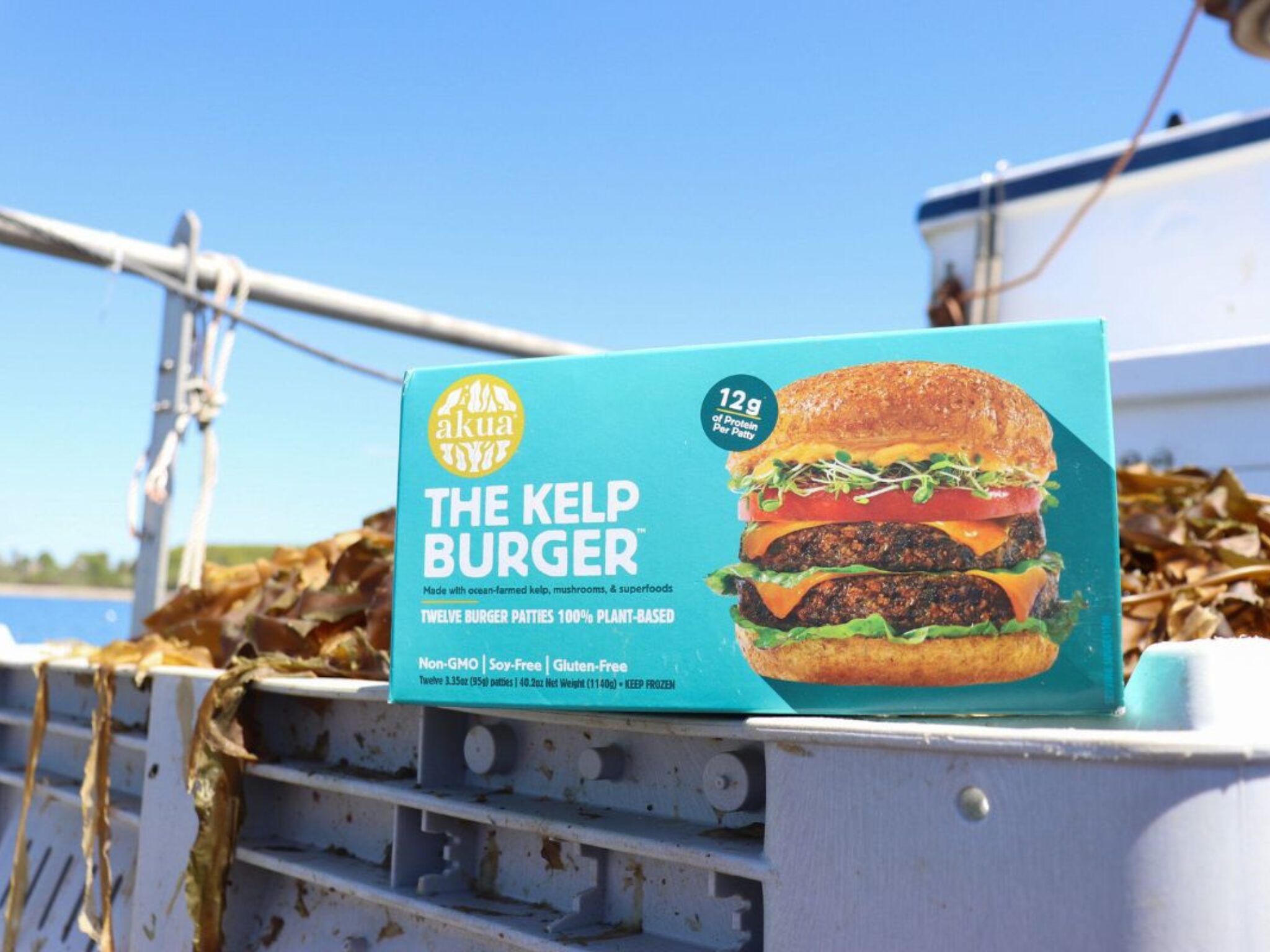Akua: Kelp Burger Startup Winds Down Amid Wider Plant-Based Industry Headwinds
4 Mins Read
Seaweed-based meat startup Akua is shutting shop after seven years in operation, citing logistical challenges and the overall decline of plant-based meat.
Akua, the New York-based maker of the Kelp Burger, is ceasing operations, in what is the latest example of the trials of the vegan seafood sector.
In a post on LinkedIn, founder and CEO Courtney Boyd Myers said the company’s board had decided to wind down in late April, seven years after it first began operations. “We had luck, but not enough. We had some wins, but they weren’t big enough,” she wrote.
And in a joint post with the startup on Instagram, she said: “After many, many tough months and hard decisions, we are announcing that our Akua adventure has come to an end. And while we didn’t get to the destination that we envisioned when we were just at the start, we’re more proud than we are sad today.”
Akua hit by slim margins and logistical hurdles
Known for its plant-based meat and seafood products from regenerative kelp, Akua first launched its jerky analogue in 2019, followed by its flagship burger in 2021. Having raised $5.4M in funding, its products have been available at retailers and online platforms like Erewhon, Vons, Pavilions, Pop Up Grocer and Good Eggs, as well as at restaurants like PLNT Burger and Hula’s Island Grill.
“We raised money through four different crowdfunding campaigns and over 75 private investors – many of whom are my friends and fellow founders,” said Myers. “Through our events, partners, customers and the thousands of investors who backed us, we built an amazing community of Akua supporters.”
She added: “With that capital and community, we made and sold Kelp Jerky, Kelp Pasta, Kelp Protein Balls, Kelp Spices, Kelp Chocolate, Kelp Beer, Krab Cakes, five flavours of Kelp Burgers (including a collaboration with SpongeBob SquarePants), plus our delicious Kelp Ground Meat.
“While we started as a D2C brand, we learned how to scale our Kelp Burgers into over 1,000 retail stores and with 100+ foodservice customers across the US.”
Kelp, a highly renewable algae, presents a ton of sustainability and nutritional values: it absorbs carbon and nitrogen; prevents ocean acidification; contains essential micronutrients like vitamins A, B6 and K and zinc, calcium and potassium; and is free from saturated or trans fats and carbohydrates.
“We faced many challenges over the years – healthy food is expensive to make and our margins were slim,” said Myers. “We had packaging, manufacturing, warehouse, and shipping catastrophes. We got copied by our supply chain partner. The investors ran into our space and they ran out. Kelp never took off like we thought it would.”
Rough waters for plant-based and alternative seafood

“As the economy took a turn for the worse, we battled uphill against the general decline of the plant-based movement,” Myers wrote. Sales of plant-based meat dipped by 19% in the 52 weeks ending May 19, according to market insights firm Circana. It reflects “broader changes in grocery purchasing due to the continued pressures of cost of living”, Joanna Trewern, director of partnerships and institutional engagement at ProVeg International, told Green Queen last month.
Many companies in the alternative protein space have felt the squeeze – whether through sales declines, layoffs or more drastic measures. In the last 12 months, Nowadays, SciFi Foods and Sunfed Meats have all ceased operations, while Mycorena has filed for bankruptcy.
Analysis by the Good Food Institute in 2023 found that alternative seafood takes up just 1% of the overall seafood share in the US. Its 2024 research doesn’t have separate figures for seafood, but suggested that within the plant-based space, vegan seafood only accounts for 1% of the market.
Ordinary Seafood and New Wave Foods, both startups making seafood analogues, have been forced to shut too. “Compared to alternative beef, pork, and chicken products, alternative seafood is still a nascent category with fewer companies tackling this problem,” Brittany Chibe, co-founder and CEO of cellulose-based seafood maker Aqua Cultured Foods, told Green Queen last month.
“Additionally, conventional seafood has a health halo and is touted as a healthier alternative to beef, for example,” she said. “Once consumers understand not only the dire state of our oceans but the potential health risks of consuming seafood through its current sourcing methods, seafood becomes much less attractive.”
In her LinkedIn post, Myers said that while the CPG sector was filled with “some of the most wonderful, impact-driven people I’ve ever met in my life”, it remains “a brutal industry filled with a lot of mediocrity, broken systems, and overpriced service providers”. This is why “Akua is one of many fantastic companies with great teams, missions and delicious products that won’t ‘make it’.
The company is currently selling The Last Bundle, a combination of all its products, to sell off its remaining inventory. As for Myers, she said she wouldn’t be building “another supply-chain-related business for the foreseeable future”.
Speaking to Green Queen about alternative seafood’s challenges in February, Maarten Geraets, former managing director of alternative protein at Thai Union, said companies should focus on resizing to lengthen runways and match sales forecasts, engage existing investors with renewed plans, seek support to handle the dip, prepare for eventual growth, and explore partnerships with like-minded players, helping make “an opportunity out of the crisis”.



